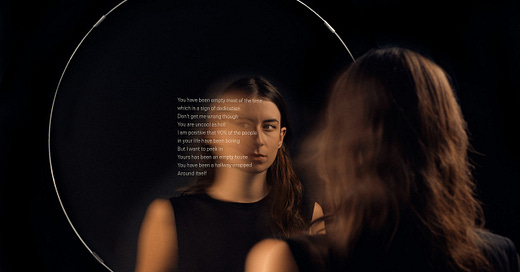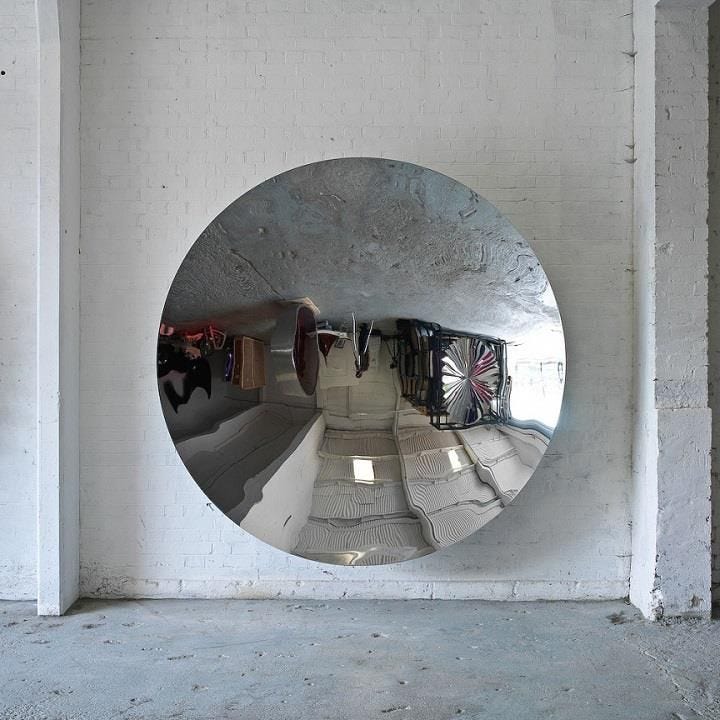You once asked me
Do you think I’m a narcissist?
I declined.
Narcissists are usually charming.
Mirrors
Cities are full of mirrors. Maybe that’s why they trap the heat so well: their iridescent buildings. But mirrors are on us too, on our walls and on our desks and in our pockets. You’re never far from shiny glass.
One might think that seeing ourselves reflected so often might make it easy on us, always getting a second perspective — you know, what Plath said of a mirror: Not cruel, only truthful.
But that isn’t true, and she knew it.
Mirrors distort, the way cameras distort, the way our memories distort. They drive us crazy with their lies. Even that fucker Anish Kapoor knows it; it’s why he’ll never give you a straight reflection.
You know what they say about psychopaths? It’s the mirror neurons. Those are the ones that are wrong; something misfiring in the brain, making it hard for them to reflect and parse the emotions of others. I’d call that an echo blindness, the first layer of self-deception; an inability to intuit the vibes of someone else.
But just as we all still smile for the photo, we look deep into the glass and see a subjective view of what its surface shows us. Perhaps we fear we’re getting old, fighting gravity, or try to parse the shine in our eyes or hide the disappointment. Or, fear we’re becoming narcissistic and at some point might try to turn the glass to liquid and dive in.
Nah. We delegate the job of reflection, but still have to handle the tricky bit: perception. Tacitly, we assume the person staring back at us is us, but it’s not. All the baggage is ours, and a stranger stares back, unable to feel any of it. That’s the psychopath part.
Mirror Ritual by Nina Rajcic brings another presence into the scene - an algorithm. Because what does a machine see? It tries to read you, responding not just with your image but a poem written just for you.
Perhaps the cold stare of a machine tempts us towards a more objective truth of ourselves, if you believe it reads us right.
But there’s a fairytale clue in the language she uses… Your mirror image is not you.
To stare into the algorithm’s flat glass, the self it sees is just a shadow. All we see staring back is ourselves.
I think of Borges: mirrors are monstrous. They promise truth but what they offer is an illusion.
Remaining addictive in that way; never letting us off the hook.
We can only look, and see who is looking.
.
.
.
This piece was originally published in ULTRA in July 2023. Experiencing more recent works by Nina Rajcic — notably New Information (2024) — it felt like a good time to revisit my obsession with mirrors.






